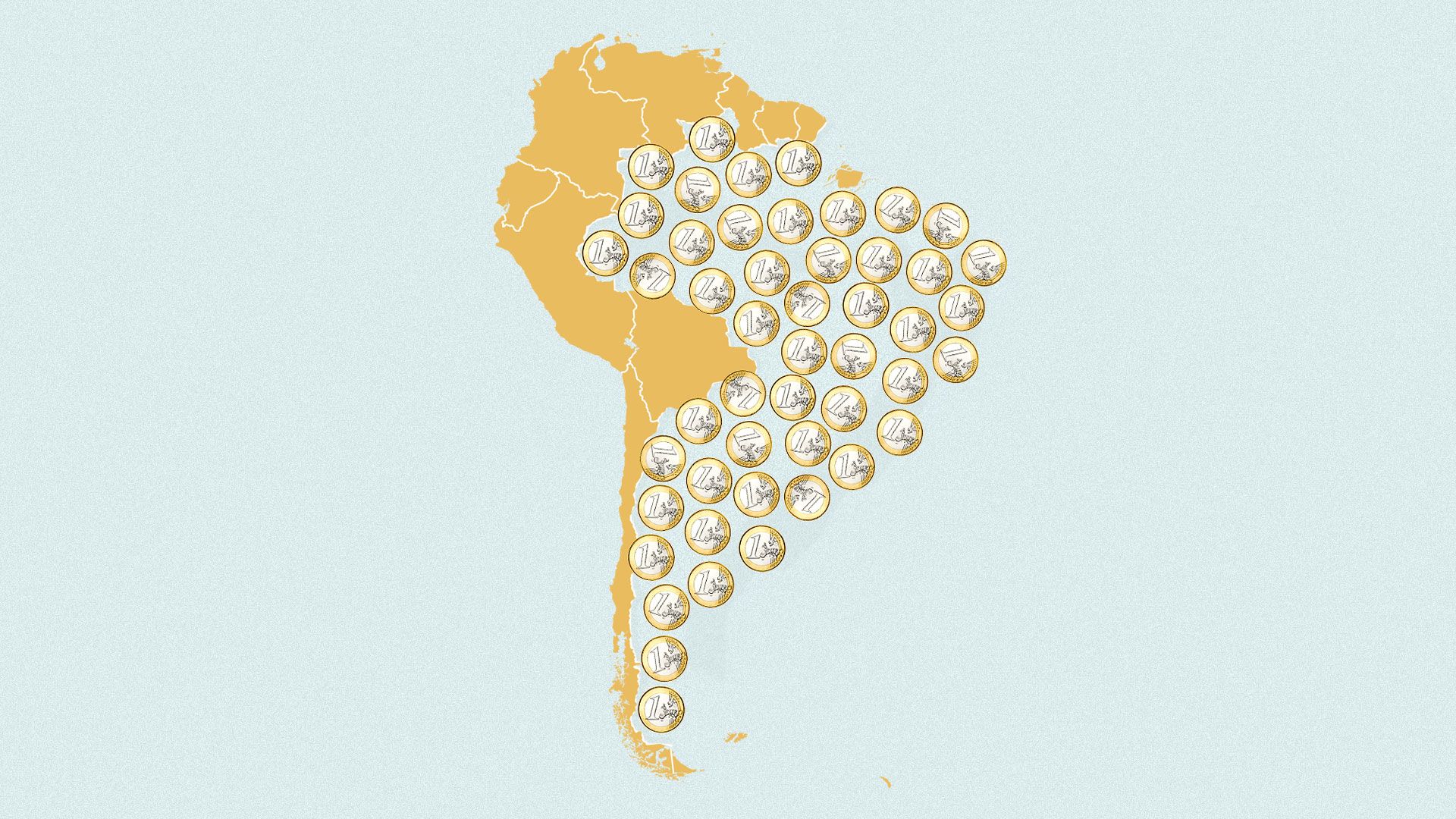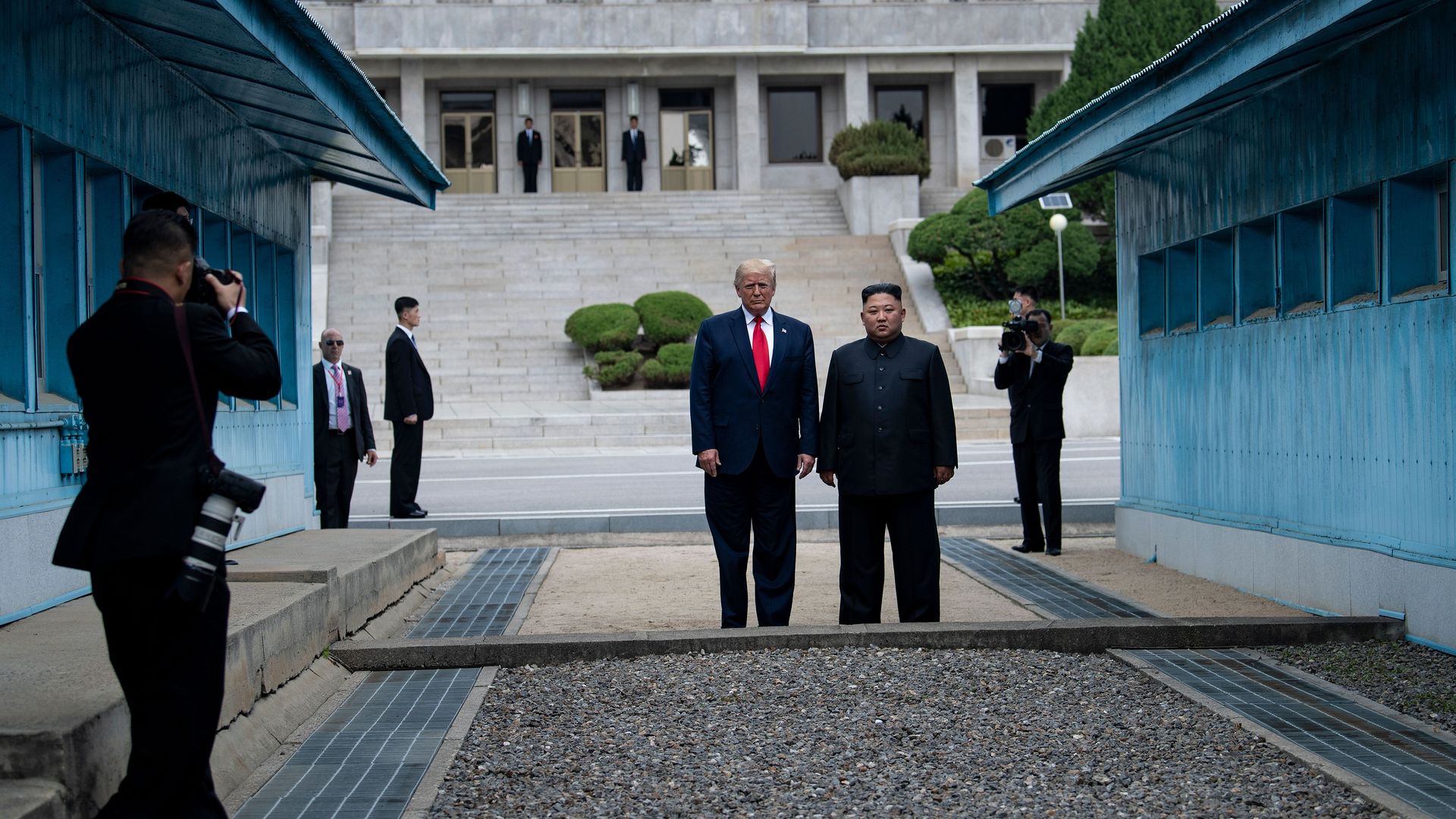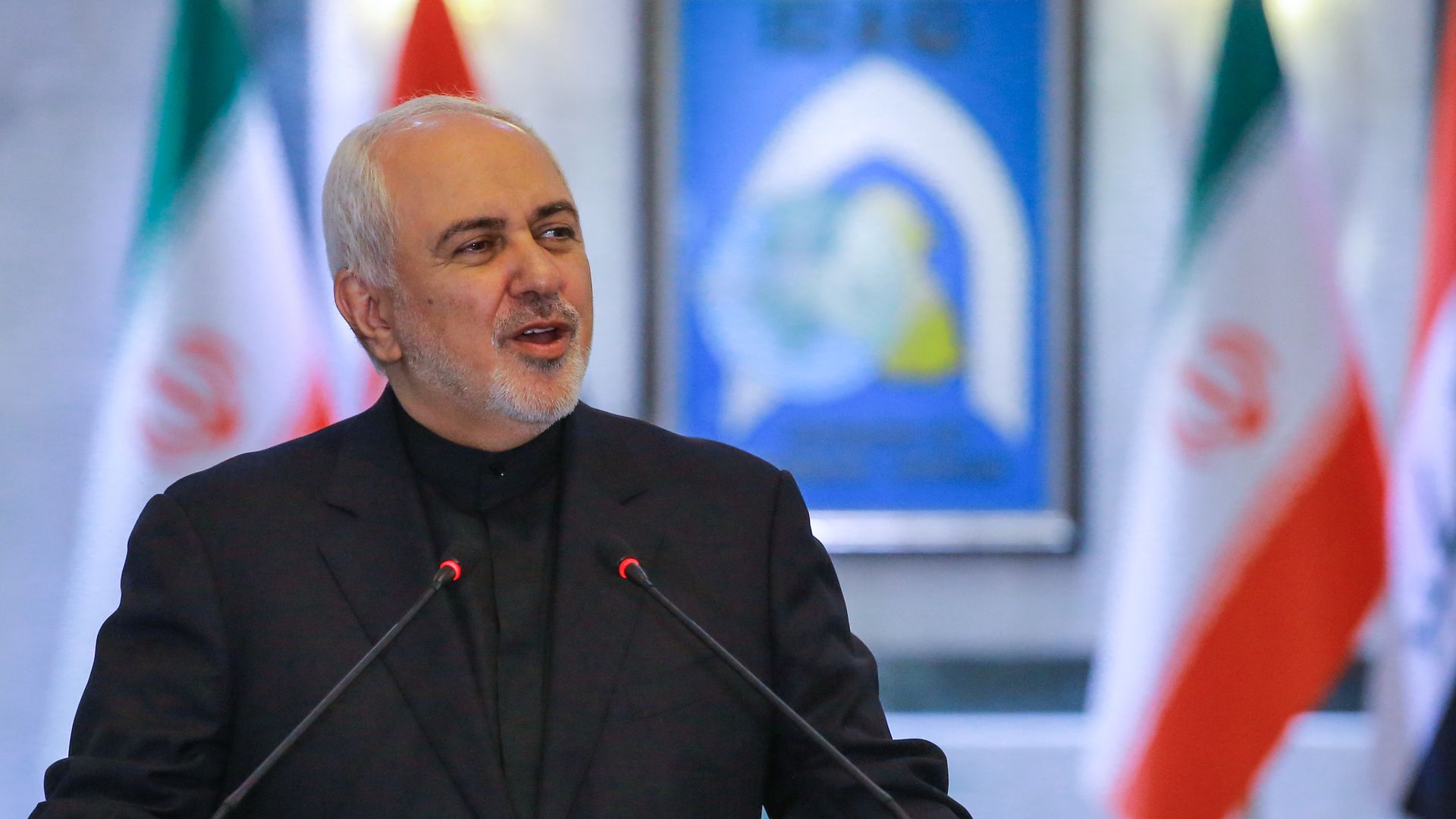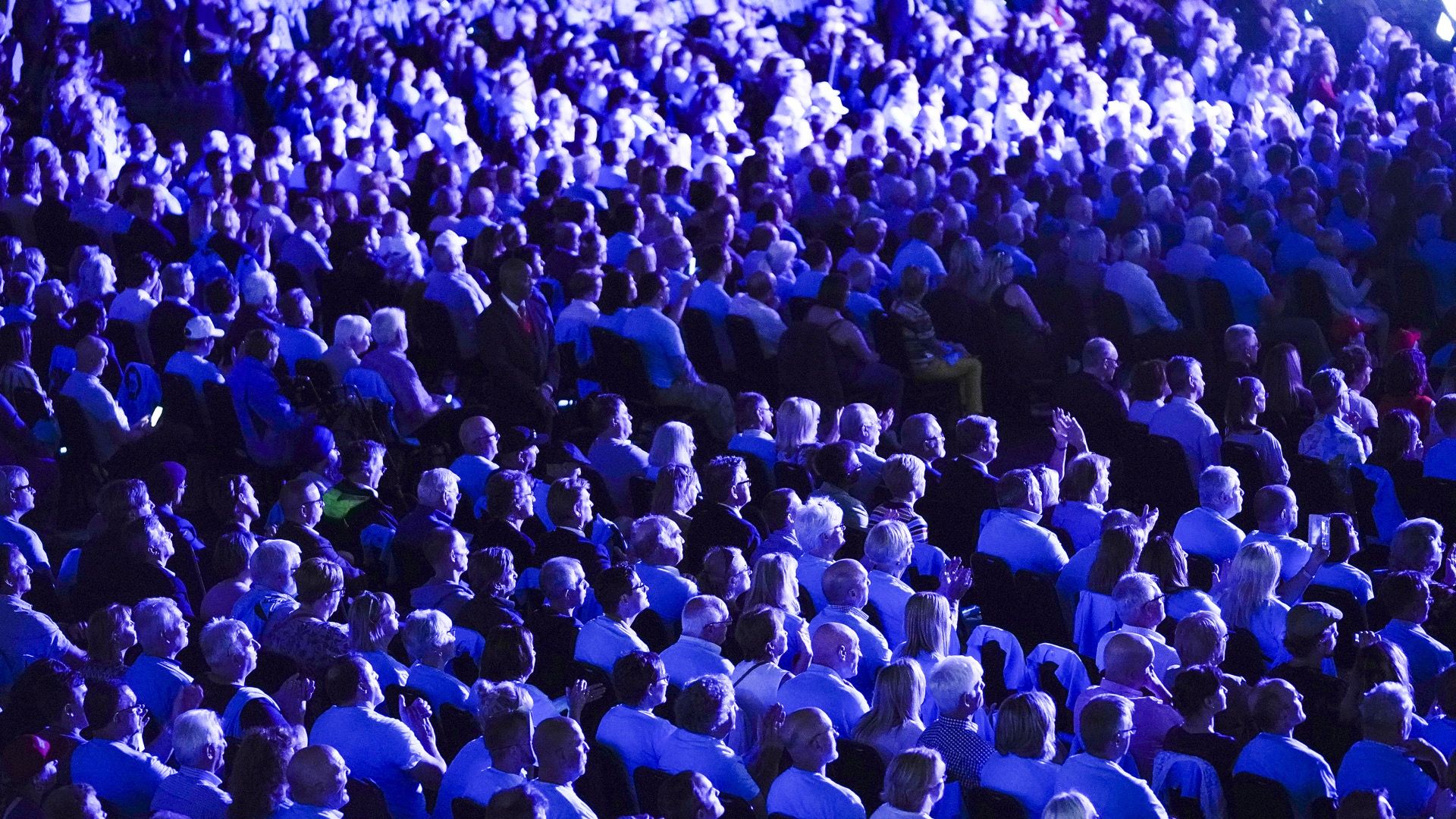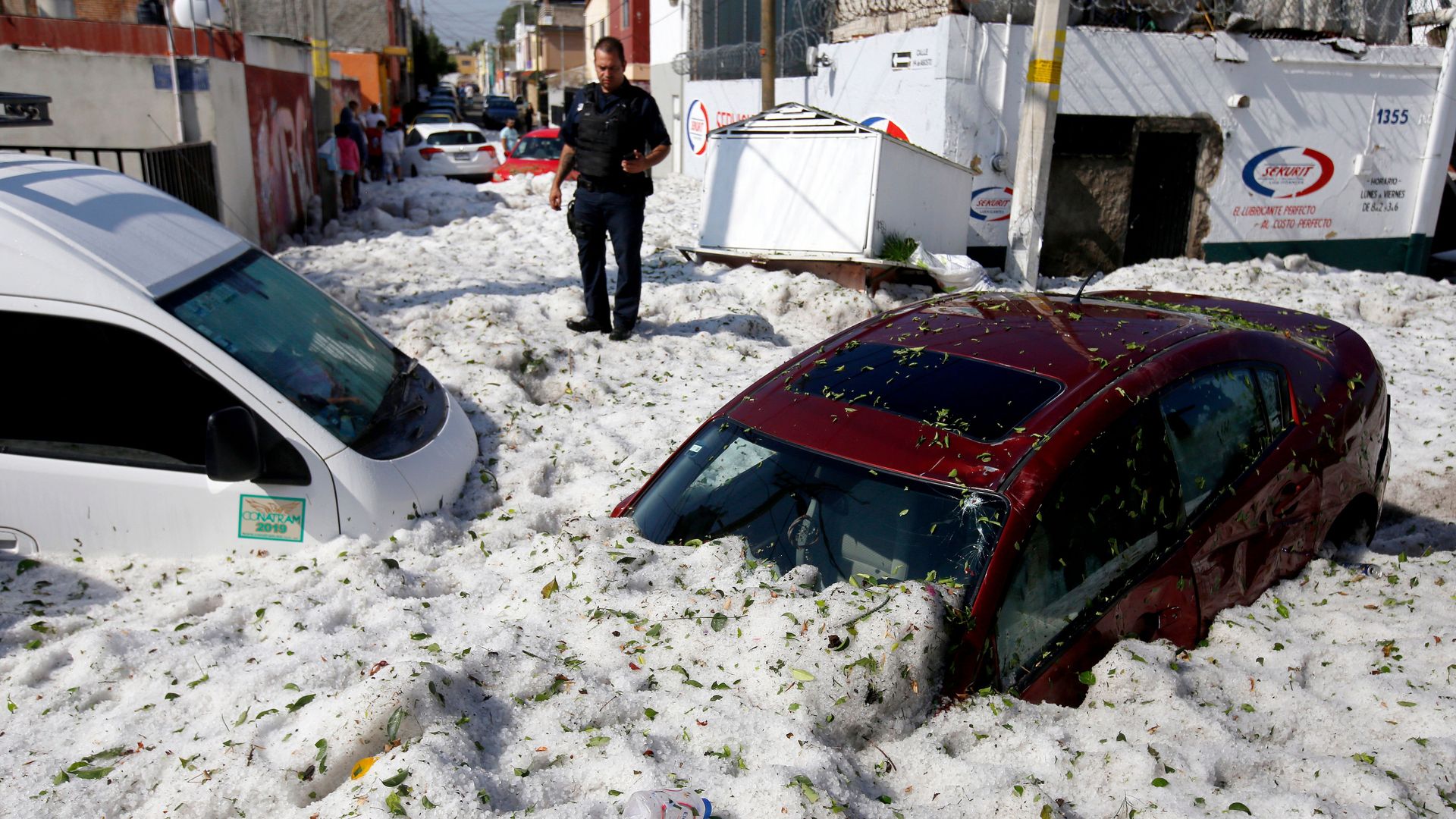Axios World
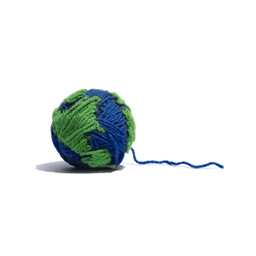
July 01, 2019
Happy Monday! If you're in the U.S., welcome to a short week. Axios World will be off on Thursday for the 4th of July.
- I'm back at the helm for the first time since March while Dave enjoys some R&R.
- Today's Smart Brevity count is 978 words (< 4 minutes).
1 big thing: A look at global generational growth


The average person on Earth is now 4.4 times richer than their ancestors were in 1950, according to an analysis by Max Roser, founder and editor of Our World in Data.
- Why it matters: That's equivalent to the prosperity of a U.S. citizen in 1950 — when the U.S. was the world's richest country. In response, the world has seen a jump-start in education, an increase in life expectancy and lower child mortality rates.
The biggest winners have been smaller nations that have benefitted from the explosion of the global economy, usually via successes in technology or finance — places like South Korea (a 32.2x jump in per capita GDP since 1950), Taiwan (30.4x) and Singapore (27.5x).
- The biggest losers have been countries that were near the bottom in 1950 and have stagnated or even declined since then. The successes of the rest of the world have left these countries — the Central African Republic (0.5x), the Democratic Republic of the Congo (0.5x) and Sierra Leone (0.6x) — on the far side of a widening inequality gap.
The bottom line: Roser, an Oxford economist, writes that he finds GDP per capita important, especially over time, because it acts as "a measure of means only and thereby respects the freedom of everyone to choose for themselves."
Go deeper: Check out an interactive version of the graphic above, where you can view and compare each country's growth, created by Axios' Harry Stevens.
2. Hong Kong heats up

"Police fired tear gas and charged protesters who occupied Hong Kong’s legislature on the anniversary of the city’s return to Chinese sovereignty, as a movement that had until now largely stuck to nonviolent means lurched toward anarchy," writes the Wall Street Journal.
- The young activists "described their rampage as a last-ditch effort to force the government to accede in a standoff over the city’s future."
- "The mayhem at the government headquarters stood in stark contrast to an earlier scene nearby, where organizers estimate 550,000 demonstrators marched through the streets in scorching summer heat, with few incidents reported apart from several cases of heat stroke."
How it's playing in Beijing, via AP: "Mainland China’s entirely state-controlled media made no mention of Monday’s protests. The main evening news broadcast carried ... shots of Hong Kong residents praising displays put on by the People’s Liberation Army garrison in the territory."
3. A trade deal 20 years in the making
Illustration: Aïda Amer/Axios
After 20 years of negotiation, the European Union and Mercosur — a trading bloc of Brazil, Argentina, Uruguay and Paraguay — reached a comprehensive trade agreement last week, bucking protectionist trends elsewhere around the globe.
- Why it matters: The deal links the economies of 780 million people.
The big wins, via the FT:
- 93% of the tariffs on Mercosur's exports — their most important being agricultural products, like meat and sugar — to the EU are eliminated, and it'll receive "preferential" treatment for the remaining 7%.
- The EU will see tariffs slashed on 91% of its exports to Mercosur, which is a significant advantage as other nations still face Mercosur's high barriers of access.
European Commission President Jean-Claude Juncker has saved free trade in the process, according to Axios Markets editor Dion Rabouin.
- Dion's bottom line: With the U.S. and China weakening each other through a potentially protracted trade war, Juncker's dealmaking has put the EU in position to take the reins on the future of global trade, and it's given fresh legs to hopes for globalization and liberalized international trade.
4. G20 roundup
Trump and Kim stand on North Korean soil during their meeting at the DMZ. Photo: Brendan Smialowski/AFP/Getty Images
The biggest news from the G20 summit in Osaka, Japan, came in its aftermath as President Trump made an impromptu, planned-via-Twitter stop to meet North Korea's Kim Jong-un at the DMZ — and became the first sitting U.S. president to set foot in North Korea.
What else you missed:
- The U.S. and China agreed to restart trade talks, allowing global markets to breathe a sigh of relief.
- Trump jokingly told Russian President Vladimir Putin not to meddle in the 2020 presidential election.
- "19 countries expressed their commitment to the Paris [climate] agreement, with ... only the United States dissenting." (AP)
5. Iran deal or no deal?
Iranian Foreign Minister Mohammad Javad Zarif. Photo: Ameer Al Mohammedaw/picture alliance via Getty Images
Iranian Foreign Minister Mohammad Javad Zarif said that his country's stockpile of low-enriched uranium crossed 300 kilograms earlier today, marking the first time the country has deliberately violated the 2015 nuclear deal, reports Axios contributor Barak Ravid.
- A spokesperson for the International Atomic Energy Agency confirmed Iran's uranium stockpile had breached the limits under the deal.
The big picture: European countries are trying to salvage the nuclear deal by finding a mechanism that will facilitate Iranian trade with the continent in order to give some relief to the Iranian economy and convince Iran to uphold the compact.
6. U.K.: Nigel's back!
A view of the crowd at the Brexit Party's "Big Vision" rally yesterday. Photo: Christopher Furlong/Getty Images
Say what you will about Brexit Party leader Nigel Farage's politics, but his tactical skills have made him one of the U.K.'s most influential politicians over the last decade.
- He seemed dead and gone after the 2016 referendum's decision to leave the EU, seemingly deprived of the single issue on which he'd led the United Kingdom Independence Party and turned it into a palatable political option.
- But he capitalized on the ongoing Brexit stalemate, spinning up a party in just a few months that rode a single policy — to ensure the U.K. leaves the EU — to a resounding victory in May's European elections.
Yesterday saw the clearest visual of Farage's success as 6,000 people packed the Brexit Party's "Big Vision" rally in Birmingham, where he announced the party plans to have 650 candidates in place across the country in anticipation of a snap general election this fall, per the BBC.
- The state of play, per Britain Elects: The Brexit Party is currently sitting in third place at 18.5% in the latest Westminster polling tracker. It made its first appearance in the tracker on Feb. 15 at 0.1%.
7. Stories we're watching
A police officer examines vehicles buried in hail after a storm in Guadalajara, Mexico. Photo: Ulises Ruiz/AFP/Getty Images
- Political newcomer linked to Russian tycoon shakes up Uruguay's election
- Study suggests Russian social media trolls had impact on 2016 election
- John Bolton denies U.S. is considering a North Korean nuclear freeze
- U.S. officials participate in controversial inauguration of East Jerusalem tunnel
- The West, dragged into the cashless society
- London hosted the first MLB games in Europe
- Surprise collapse of regional Chinese bank sets off domino effect
Quoted:
"I never expected to meet you in this place."— Kim Jong-un to President Trump at the DMZ
Sign up for Axios World

Take a tour of the most important stories shaping our world
